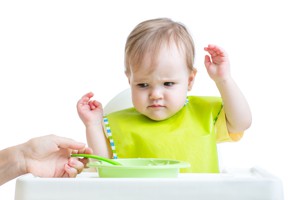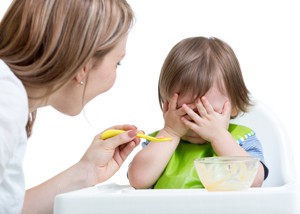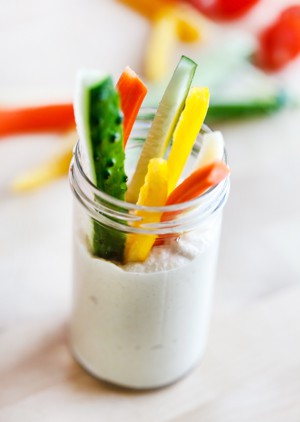 Toddlers: As much as we parents love them, they do have their special ways of testing us with their seemingly irrational behaviour. Whether it be developing a sudden fear of trains when previously they were a favourite, or a temper tantrum over wanting a red t-shirt instead of a green t-shirt, it’s fair to say that at times, our little toddlers can be somewhat infuriating, and this is especially true when it comes to food. As any parent who has dealt with a fussy toddler knows, there is nothing more likely to drive us into despair than a toddler who refuses to eat.
Toddlers: As much as we parents love them, they do have their special ways of testing us with their seemingly irrational behaviour. Whether it be developing a sudden fear of trains when previously they were a favourite, or a temper tantrum over wanting a red t-shirt instead of a green t-shirt, it’s fair to say that at times, our little toddlers can be somewhat infuriating, and this is especially true when it comes to food. As any parent who has dealt with a fussy toddler knows, there is nothing more likely to drive us into despair than a toddler who refuses to eat.
Why Is My Toddler Fussy?
You might be surrounded by parents who tell you how fabulous their little ones are when it comes to eating and be wondering what it is about your child that makes them so fussy. In fact, you could have followed all the guidelines in the world about the best way to wean your child and still end up with a terror who will only let baked beans and cress pass through his lips. Rest assured that this is all perfectly normal, and nothing to get too worried about.
In fact, child development experts claim that a fear of new foods is actually a biological instinct that typically develops in children aged around two years, in order to prevent them eating anything harmful they might find growing around them. So, if you do have a particularly fussy toddler, at least you can take some comfort from knowing that he or she is unlikely to munch on a toxic looking toadstool or suspicious berry.
Should I Be Worried About My Toddler’s Eating Habits?
 There are plenty of parents out there who will tell you that for a good few months their toddler ate nothing but white foods and turned out just fine. Toddlers need a surprisingly small amount of food to get by, and, unless there is an underlying medical condition, your toddler will not starve himself.
There are plenty of parents out there who will tell you that for a good few months their toddler ate nothing but white foods and turned out just fine. Toddlers need a surprisingly small amount of food to get by, and, unless there is an underlying medical condition, your toddler will not starve himself.
If you are particularly concerned, try keeping a log of your toddler’s food intake for a week as you might be surprised at what they do eat. Furthermore, if you have concerns about your toddler getting the right amount of nutrients, there are multi-vitamin supplements available for children aged one and up.
Tips For Feeding A Fussy Toddler
There are lots of tricks you can try to encourage your child to eat, but if you don’t see results straight away then try not to become too disheartened. Instead, be patient, and remember that as with every other phase of your child’s development, this too shall pass.
Eat Together
Family meal times are important for your toddler, as he or she will learn from your example. Sadly, this isn’t always possible thanks to modern work schedules, and so if you and your partner tend to eat after your toddler has gone to bed, then consider sitting with your toddler when they do eat and having a small plate of the same food with them.
If you can eat together, then make meal times fun. Make it a game to see who can eat the most amount of peas, for example. Keep it light-hearted, if your mealtimes are stressful then your toddler is less likely to enjoy eating and be willing to try new foods.
Mix Old & New
If you put a plate of entirely new or disliked food in front of your toddler, you shouldn’t be too shocked when he or she refuses to eat. Instead, aim to have a mixture of familiar favourites with new foods and gently encourage your toddler to take a bite. It’s still unlikely to work the first time around, but perseverance is key, and with time, your toddler may slowly get used to the idea that broccoli is not something to be feared.
Limit Snacks & Keep Them Healthy
 If you are anxious about your toddler’s eating habits, it can be easy to fall into the trap of allowing him or her to eat lots of snacks during the day. This can lead to your toddler being too full at mealtimes, so try not to give snacks in the hour or so leading up to the main meal.
If you are anxious about your toddler’s eating habits, it can be easy to fall into the trap of allowing him or her to eat lots of snacks during the day. This can lead to your toddler being too full at mealtimes, so try not to give snacks in the hour or so leading up to the main meal.
Your toddler may also be filling up on milk or juice between meals. Give water instead of juice, and limit the amount of milk he or she drinks to no more than 500ml a day.
Keep sweets, biscuits and crisps, etc. to a minimum and always offer healthy snacks instead, such as fruit or carrot sticks, so that your child doesn’t develop a strong preference for the unhealthy alternatives. Some children love dipping food, so you could offer carrot and cucumber sticks with hummus as a snack.
Be Relaxed
If your toddler tells you that he or she is full, then don’t push them to eat more. Toddlers are very good at regulating their own food intake and still only have very small stomachs (about the size of your fist), so don’t be tempted to try and spoon feed your toddler, or insist that he or she needs to finish their plate, as this has been linked with over-eating and obesity in later life.
Get Plenty Of Exercise
Make sure that your toddler gets plenty of exercise during the day so that he or she builds up a good appetite. You can make it fun by going to the park, or getting your child to collect leaves, sticks etc. for a nature collage. On rainy days you could visit the local swimming pool or soft play centre.
Be Sneaky
If you are really worried about your child not getting enough of the right sort of foods, then don’t be afraid to sneak them in as a temporary measure. If pasta is a big favourite, then why not blend some carrots and spinach in with a tomato sauce, or cauliflower into a cheese and bacon sauce.
Surprisingly, spinach also blends well into fruit smoothies with no difference to taste. There are also lots of ways that you can bake vegetables such as carrots, courgettes, and sweet potato into cakes as a sweet treat.
Try Not To Worry
Finally, don’t spend too much time worrying about your toddler’s food intake. It will cause you unnecessary stress and your toddler may pick up on your emotions, resulting in them becoming even more wary about mealtimes.
